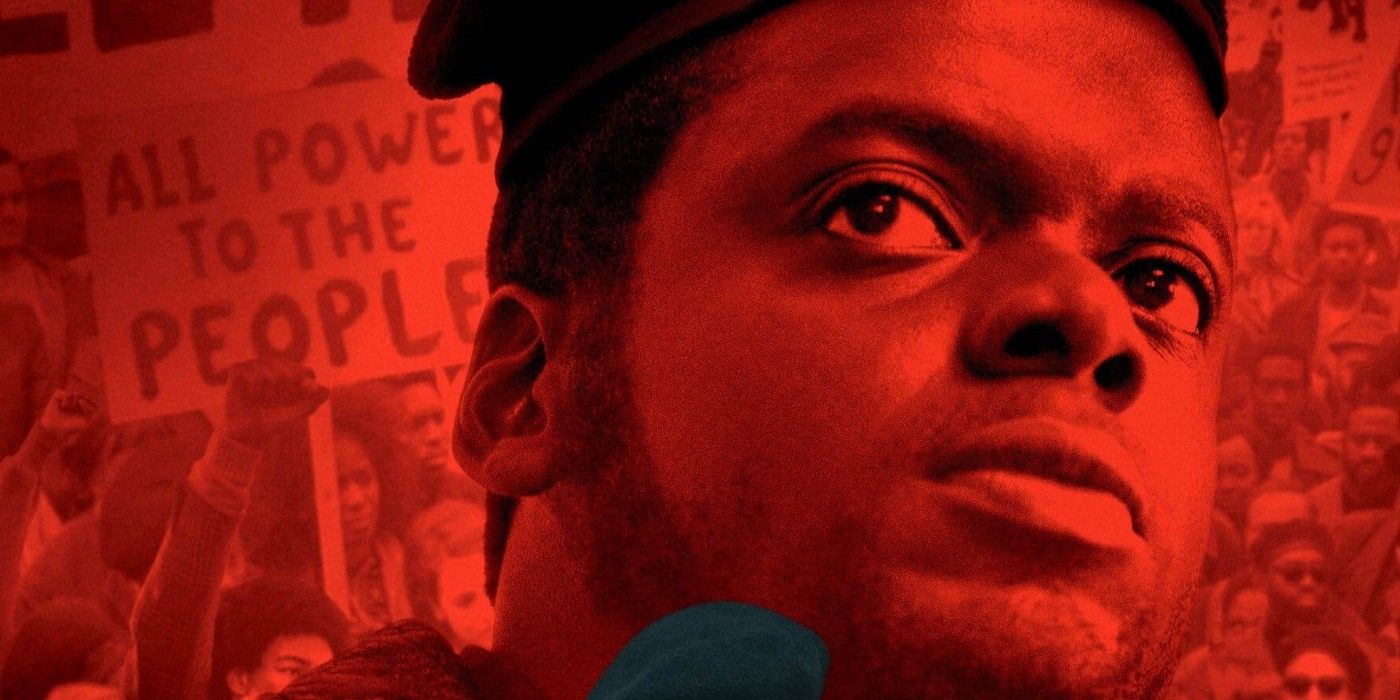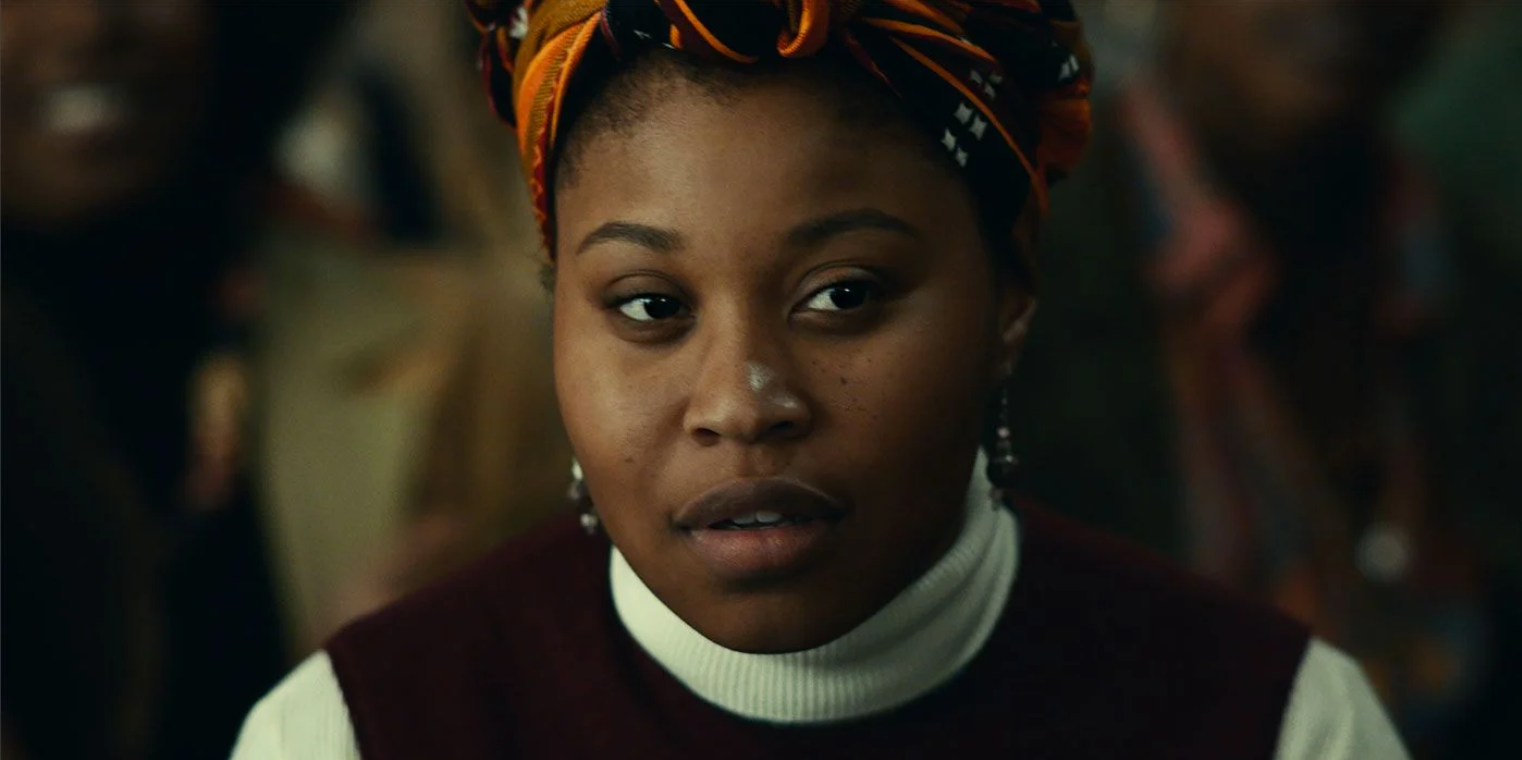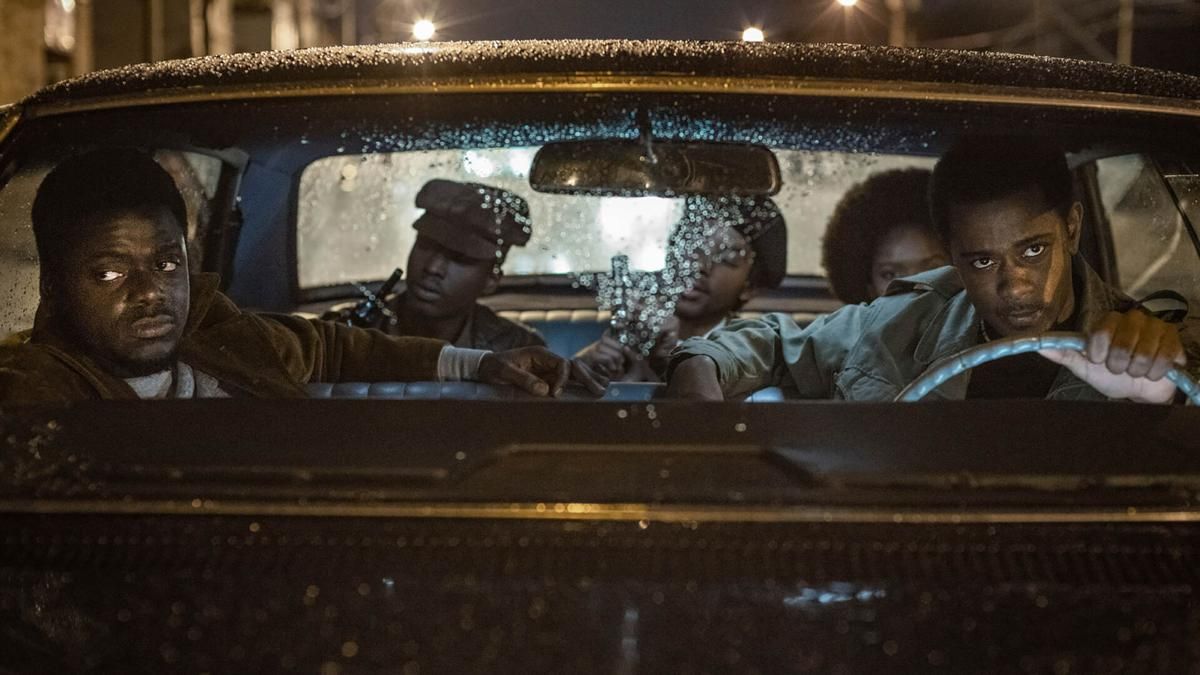
There's such a radical intensity to Judas and the Black Messiah, Shaka King's biopic of Black Panther leader Fred Hampton and FBI informant William O'Neal, that it feels kind of astonishing a major studio like Warner Bros. was willing to release it. In contrast to a film like Aaron Sorkin's The Trial of the Chicago 7, which tried to soften its subjects' radical politics into a form more easily digestible to mainstream centrist liberals, Judas and the Black Messiah honestly presents and sides with Hampton's anti-capitalist, anti-police politics. Any apprehension about his militarism is less political and more to do with its personal psychological effects.
Daniel Kaluuya's performance as Fred Hampton is electric. For a script that spends a lot of time on Hampton giving speeches, you need an actor who can make those speeches roar, and Kaluuya is so captivating that he instantly becomes an Oscar frontrunner. As the "Judas" to Hampton's "Black Messiah," William O'Neal's character arc, going from creative thief to self-interested spy to conflicted killer, plays well to LaKeith Stanfield's acting strengths (it's almost the tragic inverse of his Sorry to Bother You performance).

The surprise stand-out of the cast is Dominique Fishback as Deborah Johnson (now Akua Njeri), Hampton's fiancée and the one person who can really debate him. This could have been a stereotypical "suffering partner" role you often see in biopics, but she makes it something more. The romance between these two activist-poets with similar goals but complete opposite energies is the real heart of the movie.
These three incredible performances do a lot to keep the intensity going in a film that's a bit too much of a slow-burn to be truly incredible as a whole. Judas and the Black Messiah runs only a little over two hours, but it feels long, especially viewed at home streaming where most people will (and should) see it. Compare it to a film like Spike Lee's Malcolm X, which runs around three and a half hours but breezes by in comparison.

What makes Malcolm X work so well from a screenwriting perspective is that every sequence has a clear goal for the characters, and the goals keep shifting as the characters evolve. The character goals in Judas and the Black Messiah are more static and nebulous for the most part. Hampton wants revolution, O'Neal wants to protect himself while fulfilling his informant obligations, but these long-term aims don't always translate into short-term drama. When the script does offer clear immediate goals (Hampton winning over a crowd of self-described hillbillies with Confederate flags to his side, O'Neal realizing his job has changed from subverting Hampton to killing him), the movie comes alive.
In his introduction to the film's world premiere at the 2021 Sundance Film Festival, Shaka King warned that this was not exactly an "entertaining" film, but hoped that it would offer "important information" and "inspiration." That's an accurate assessment, as this is a dark tragedy. The "what happened later" bits of documentary footage before the credits, which are often extraneous in most historical films, actually manage to drop the biggest gut-punch of them all. Judas and the Black Messiah is definitely on the list of films you should watch once, but probably won't want to watch again.
Judas and the Black Messiah stars Daniel Kaluuya, Lakeith Stanfield, Jesse Plemons, Dominique Fishback, Lil Rel Howery and Martin Sheen. It comes out in theaters and on HBO Max on February 12.
0 Comments